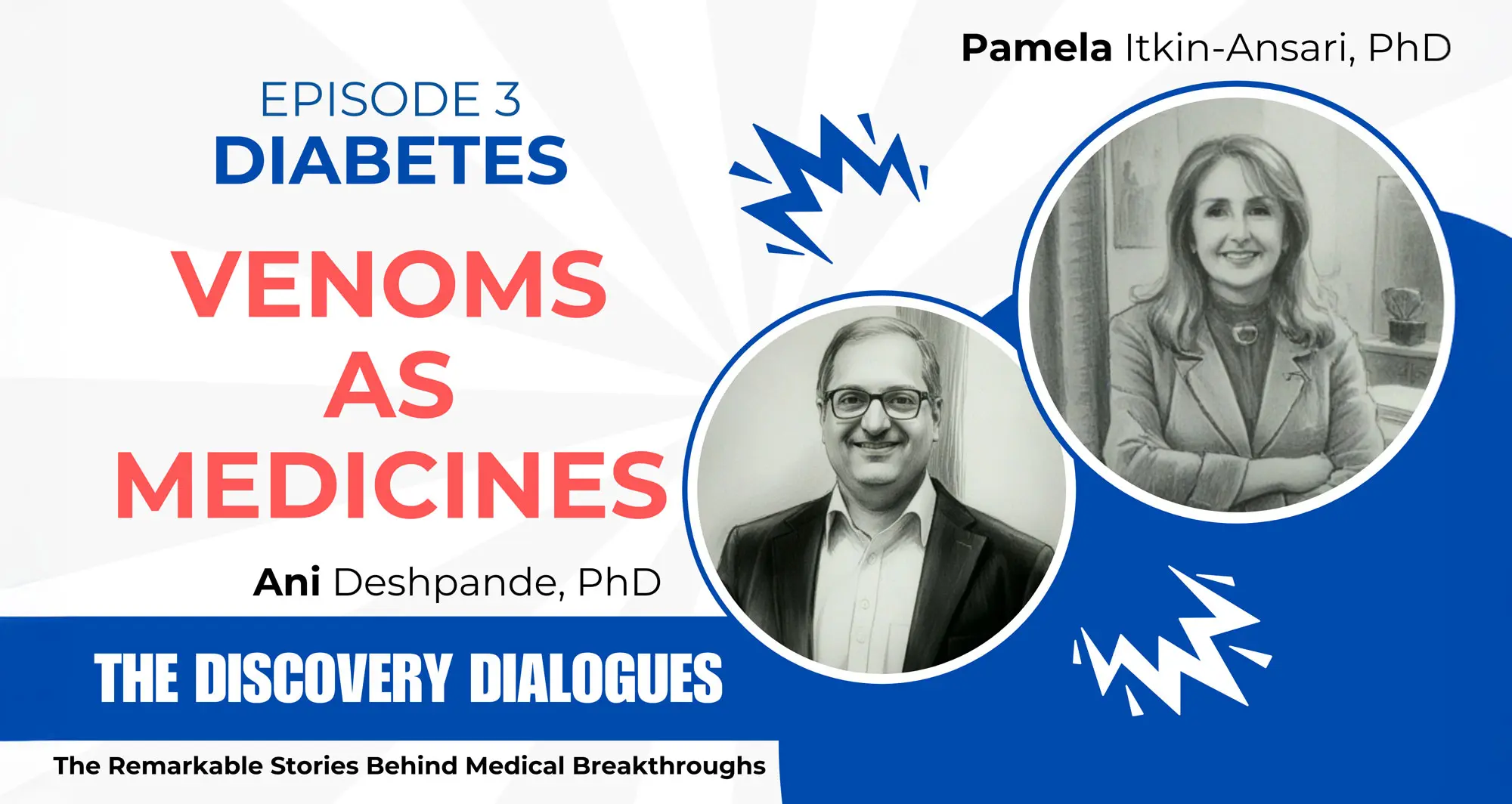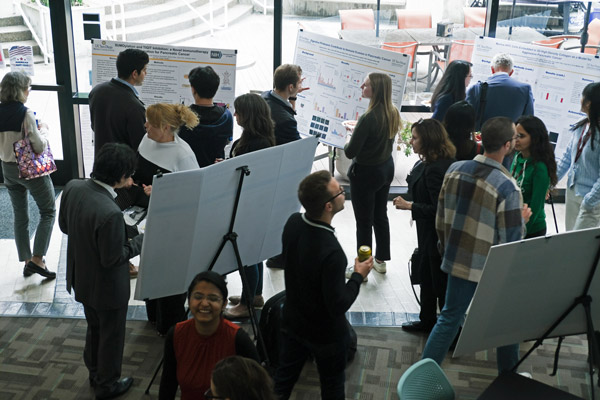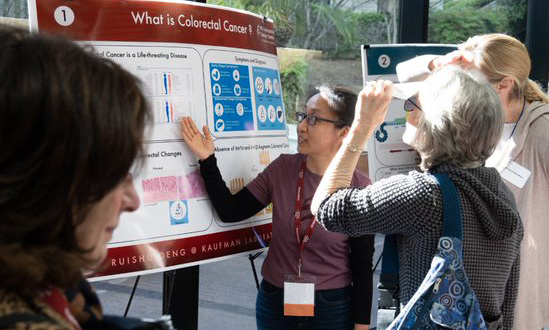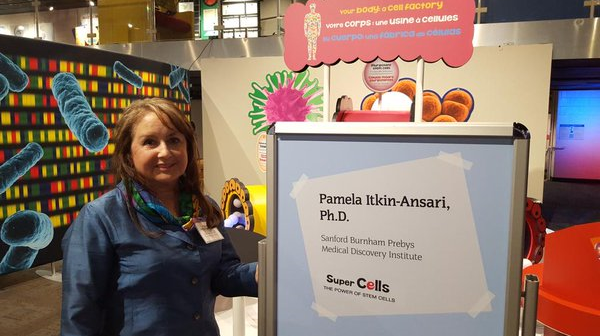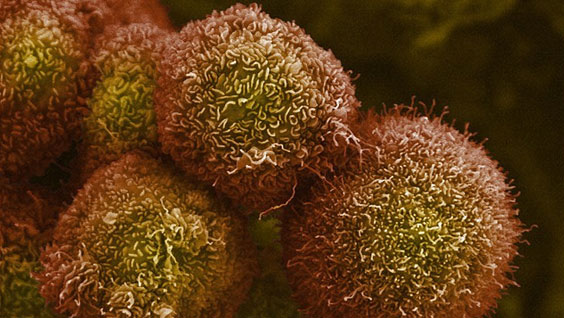Sanford Burnham Prebys scientists bring dramatic stories of scientific achievement to life
In March 2025, Sanford Burnham Prebys scientists Ani Deshpande, PhD, and Pamela Itkin-Ansari, PhD, launched a new podcast exploring groundbreaking discoveries in science and medicine. The initial episodes have garnered rave reviews, including being hailed as “masterpieces” by upcoming podcast guest Adam Heller, PhD, the scientist and inventor who revolutionized blood sugar testing and laid the groundwork for modern continuous glucose monitoring systems.
On the first episode of The Discovery Dialogues Podcast, the hosts examined early descriptions of diabetes across ancient civilizations. Deshpande and Itkin-Ansari traced the research that led to the discovery of insulin and to life-saving treatment for diabetes.
Following its discovery as a treatment for diabetes, insulin had to be purified from millions of animal carcasses. In the follow-up episode, the podcasters discussed the race to make human insulin using genetic engineering, including interviews with Keiichi Itakura, PhD, a key member of the historic team that created the first synthetic gene to make human insulin, and Herb Boyer, PhD, the scientist who founded the first biotech company called Genentech and brought insulin to millions of patients.
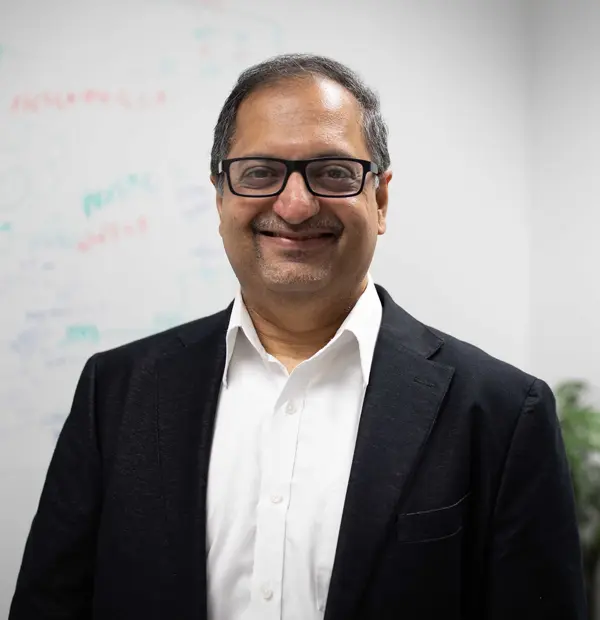
Ani Deshpande, PhD, is an associate professor in the Cancer Genome and Epigenetics Program at Sanford Burnham Prebys.
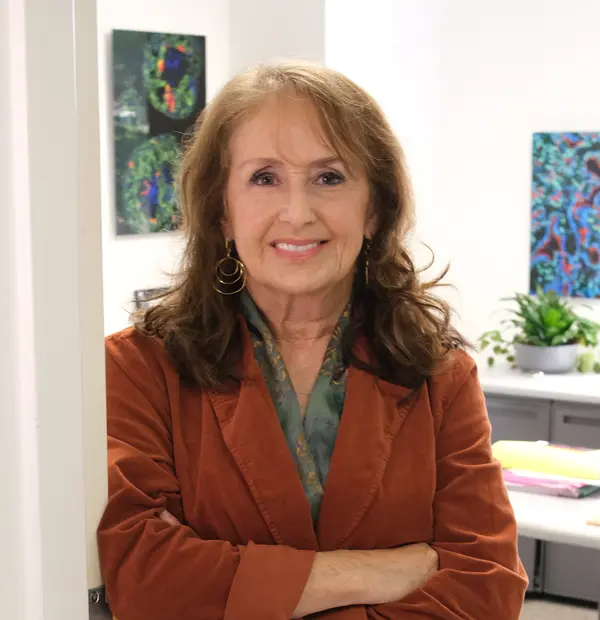
Pamela Itkin-Ansari, PhD, is an adjunct professor in the Center for Cardiovascular and Muscular Diseases at Sanford Burnham Prebys.
Last week, Deshpande and Itkin-Ansari released their third episode detailing animals that use insulin as venom and highlighting an animal that can sense low blood sugar faster than a machine.
We recently sat down with them to learn more about their motivations and creative process.
What is your origin story as scientists turned podcasters?
DESHPANDE: I have been very interested in communicating science for quite some time. And I think it is important for more scientists to speak in a way that all people can understand, and to embrace new ways of communicating.
I got especially excited to talk about the incredible potential of GLP-1 drugs such as Ozempic and Wegovy, but I don’t think you can properly understand them without a grasp of diabetes. I decided to tackle diabetes as the podcast’s first topic, and I reached out to Pam as a partner with complementary expertise.
ITKIN-ANSARI: I have done a lot of scientific outreach in the past as a diabetes scientist, including with the La Jolla Playhouse and Fleet Science Center, so I jumped at the opportunity. As it turns out, Ani and I are kindred spirits in terms of our desire to help people understand how biomedical research has changed the world.
What is your process for developing each episode?
DESHPANDE: We have a very elaborate process for deciding on each episode’s topic. outlining the chapters or segments and then passing drafts back and forth until we’ve refined them into a version that is both accurate and entertaining.
ITKIN-ANSARI: Getting that balance right is so important. I’m a Radiolab junkie. I have to hear every episode. The reason I keep coming back is because I get to learn something new and have a ton of fun along the way.
DESHPANDE: It is important to us that we’re not just telling stories people already know, so we take our time to find fascinating stories about the science and the personalities behind the discoveries.
How much research goes into making the podcast?
DESHPANDE: We just read and read and read and read. Then, we bounce ideas off each other to see what makes it into an episode.
ITKIN-ANSARI: The other thing is fact-checking. We feel it our job as card-carrying scientists to be as thorough as we can be to get the facts right.
While writing for the first three episodes, what information or stories surprised you?
ITKIN-ANSARI: For me, I was amazed by the venoms of the cone snail that have already led to an FDA-approved drug for severe pain and may also revolutionize diabetes treatment.
DESHPANDE: I think it’s surprising that diabetes had been described in detail more than three millennia ago. Many of our audience members told us they were surprised by that fact as well.
What teasers can you share about future episodes?
ITKIN-ANSARI: For an upcoming episode, a legendary scientist who changed diabetes care forever after surviving the Holocaust and making his way to the U.S.
DESHPANDE: One of the most fascinating things we will cover in our future episodes and that will surprise most people is that many of the most influential drugs in the history of medicine have come from plant poisons and animal venoms. It blows my mind, and I hope our listeners will also find it to be amazing.
Listeners can find The Discovery Dialogues Podcast on Spotify, Apple Podcasts and Amazon Music. The YouTube version includes on-camera interviews and additional illustrations.
